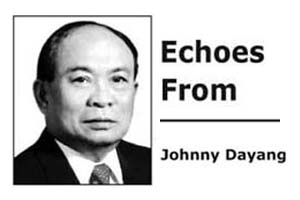BY JOHNNY DAYANG
*
THE return of the jeepneys as ‘kings of the road’ in Manila does provide the answer everybody has been looking for about traffic in the metro. The partial deployment has only provided urgency for the government to address the issues on the numerical grow of the jeepneys.
Before we start complaining why smoke-belching public transports are again allowed to ply the roads, let us look first at some issues the transport department must address.
First, DoTr should craft an order that disallows, starting 2022, the fielding of any type of public transport with surplus engines. Violating this guideline means non-registration.
Second, to determine the true date when the engine was built, the transport agencies should record the manufacture date, not the entry of an engine to the domestic shores.
Third, registration of transports shall be done every two years to ensure that ALL public transports are subjected to actual physical inspection. Allowing bus company managers to just bring the documents to the transport agencies during registration automatically invites bribery.
Fourth, the DoTr and its subsidiaries must craft orders or expand existing laws on transport to make the use of a plate number for use in two or more public vehicles an automatic cause for closure of public transport operations, be it individual or corporate.
Fifth, change of chassis and engine replacement should strictly be reported to transport authorities, subject to the condition that discarded chassis or replaced engines cannot be used and recycled for any vehicle as these are considered junks.
Sixth, transport agencies should strictly implement non-registration of public vehicles beyond their productivity. A public transport, therefore, cannot be renewed beyond ten years.
Seventh, public transports converted to private vehicles within ten years of the first registration should be not allowed to renew beyond the 10-year period. Public transport turned private vehicle shall be considered as public conveyances in terms of length of use.
Eighth, there should be in every region a government-owned junk yard where abandoned, and non-registered vehicles are destroyed. This will reduce recycling of surplus parts, use of second-hand parts from stolen vehicles, and the rise of businesses selling surplus vehicle parts.
Ninth, the land transport agency should make it a policy that cars sold to another party can be registered by the new owner with the nearest LTO office.
And tenth, it shall be mandatory for new vehicle registrants, public or private, to have parking spaces, whether owned, leased or used with permission, subject to ocular inspection and under strict regulations that their use of public roads for parking can result in very stiff fines.



